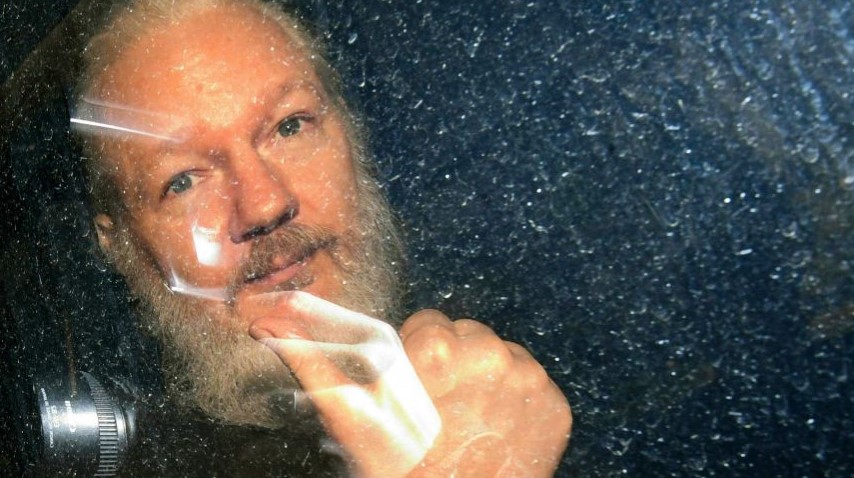A British judge on Monday blocked WikiLeaks founder Julian Assange's extradition to the United States to face espionage charges, finding he was at serious risk of suicide.
District Judge Vanessa Baraitser said the 49-year-old Australian publisher faced "oppressive" conditions in maximum-security isolation if detained in the US.
In court, Assange wiped his forehead as the decision was announced while his fiancee Stella Moris burst into tears and was embraced by WikiLeaks editor-in-chief Kristinn Hrafnsson.
Outside the Old Bailey court in central London, his supporters who had gathered since early morning erupted in cheers and shouted "Free Assange!"
Assange and his legal team have long argued that the protracted case, which has become a cause celebre for media freedom, was politically motivated.
It follows more than a decade of legal controversies but the ruling is still subject to appeal. Assange was remanded in custody but a bail hearing could be heard later on Monday.
Any decision to block extradition should meet a high bar given Britain's treaty obligations, Baraitser said.
But facing the "harsh conditions" likely in the US jail system, Assange's mental health would deteriorate, "causing him to commit suicide" with the determination of a person with autism spectrum disorder, she ruled, siding with a diagnosis by psychologists.
Baraitser rejected US experts' testimony that Assange would be protected from self-harm, noting that others such as disgraced US financier Jeffrey Epstein had managed to kill themselves in custody despite wardens' supervision.
-For this reason I have decided extradition would be oppressive by reason of mental harm and I order his discharge- she said.
The US non-profit Freedom of the Press Foundation said the case against Assange was "the most dangerous threat to US press freedom in decades".
-The extradition request was not decided on press freedom grounds; rather the judge essentially ruled the US prison system was too repressive to extradite.-
Assange faced 18 charges in the United States relating to the 2010 release by WikiLeaks of 500,000 secret files detailing aspects of military campaigns in Afghanistan and Iraq.
If convicted in the United States, Assange faced up to 175 years in jail.
Before the ruling, both Germany and a UN rights expert expressed concern over the human rights and humanitarian problems presented by the extradition.
Assange has a history of depression and a respiratory condition that makes him more vulnerable to Covid-19, which has infected several inmates at the high-security prison where he has been held in London.
He has also complained of hearing imaginary voices and music during his detention.
UN special rapporteur on torture Nils Melzer has urged US President Donald Trump to pardon Assange, saying he is not "an enemy of the American people".
-In pardoning Mr Assange, Mr President, you would send a clear message of justice, truth and humanity to the American people and to the world- he wrote in December.
-You would rehabilitate a courageous man who has suffered injustice, persecution and humiliation for more than a decade, simply for telling the truth.-
The prospect of a possible pardon from the outgoing US leader has gained ground following a slew of others granted to a number of Trump's political allies.
Moris, with whom Assange has two young sons, also appealed to Trump directly.
The UK hearing was told Trump promised to pardon Assange if he testified Russia hacked into the computer servers of the Democratic National Committee (DNC) during the 2016 election campaign.
WikiLeaks later published the emails, which proved politically damaging to Trump's Democratic rival Hillary Clinton before the vote.
Washington claims Assange helped intelligence analyst Chelsea Manning to steal the 2010 documents before exposing confidential sources around the world.
After Sweden first issued an arrest warrant for Assange in 2010 over allegations of sexual assault, he sought asylum in Ecuador's embassy in London, where he remained from 2012 until 2019.
In April 2019, Ecuador, by then ruled by right-wing President Lenin Moreno, revoked his citizenship. British police dragged Assange out of the embassy.
He was arrested for breaching his bail terms but remained in custody pending the ruling on the extradition request.
The earlier Swedish assault investigation against him was later dropped due to lack of evidence.
